By Treatment
- Liposuction Surgery
- Hepatitis Treatment
- Ayurvedic Treatment in India
- Naturopathy Treatment in India
- Spa Therapy Treatment in India
- Aromatherapy in India
- Liver Transplant
- Liver Fibrosis
- Liver Tumor
- Liver Cancer
- Liver Cirrhosis Treatment
- Coronary Artery Bypass Grafting Surgery
- Heart Valve Replacement
- Angioplasty
- Aortic Valve Replacement
- ASD/VSD closure surgery in India
- Cardiac Tumours in Children
- Cardiac Ablation Surgery
- Renal Angiogram
- Cardiac Tumour Treatment
- Pacemaker Implant
- CRT-D Implant
- CRT-P Implant
- Hernia Surgery
- Spine Surgery
- Spine Tumor Surgery
- Spinal Cord Cancer
- Cervical Spine Surgery
- Spinal Fusion Surgery
- Facet Joint Spine Surgery
- Knee Replacement Surgery
- Rhytidoplasty Surgery in India
- Hip Replacement Surgery
- Shoulder Replacement Surgery
- Cataract Surgery
- TAVR (Transcatheter Aortic Valve Replacement) Treatment in India
- Breast lift surgery in India
- Face Lift Surgery
- Rhinoplasty surgery in India
- Yoga and Meditation in India
- Thigh Lift surgery in India
- Breast augmentation
- Robotic Knee Replacement Surgery
- Mentoplasty Treatment in India
- Arthroplasty surgery in India
- Cordotomy Surgery
- Arthroscopy Surgery in India
- Macular Degeneration
- Spinal Decompression Surgery
- Penile Implant Surgery in India
- Erectile Dysfunction Treatment in India
- Diabetes cause Impotence Treatment India
- Peyronie's treatment in India
- Urethroplasty Surgery in India
- Artificial Urinary Sphincter Surgery in India
- Phalloplasty Surgery in India
- Penectomy Surgery India
- Priapism Treatment in India
- Multiple Sclerosis
- Hysteroscopic Surgery
- LEEP (Loop Electrosurgical Excision Procedure) Treatment
- Vaginal Hysterectomy Surgery
- Lasik Eye Surgery
- Laparoscopic Myomectomy
- Glaucoma Treatment in India
- Hysteroscopy Treatment
- Astigmatism Treatment in India
- Corneal Transplant
- Cochlear Transplant
- Dialysis & Kidney Transplant
- Hysteroscopic Myomectomy
- Tympanoplasty Surgery
- Block Dissections of Neck, Endolymphatic Sac in India
- Interstitial Cystitis Treatment
- Total Laparoscopic Hysterectomy (TLH)
- Multiple Scoliosis Surgery
- Myomectomy Treatment
- Stapedectomy Surgery
- Thyroid Cancer Treatment
- Dilation and Curettage
- Trigger Point Injection (TPI)
- Deep Brain Stimulation (DBS)
- Bone Marrow Transplant
- Scoliosis Surgery in India
- Spondylolisthesis Spine Treatment
- Colposcopy
- Ossiculoplasty surgery in India
- Laparoscopic Uterine Suspension Surgery
- Rotator Cuff Tear Surgery
- Laryngectomy Surgery in India
- Micro Laryngeal surgery in India
- Laparoscopic Supracervical Hysterectomy
- Pelvic Laparoscopy Surgery
- Functional Endoscopic Sinus Surgery in India
- Cardiology
- Liver Disease Treatment
- Osteoarthritis Spine Treatment
- Arthrodesis Surgery
- Gallbladder Cancer Treatment
- Pancreatic Cancer Treatment
- Meningiomas Treatment
- Ovarian Cancer Treatment
- Testicular Cancer Treatment
- Anterior Cruciate Ligament (ACL) Surgery
- Bone Marrow Cancer
- Orthopaedics & Joint Replacement
- Degenerative Disk Spine Treatment
- Herniated Disc Spine Treatment
- Neurology and Neurosurgery
- Anal Cancer Treatment
- Kidney Cancer
- Minimally Invasive Spine Surgery
- Bladder Cancer Treatment
- Stomach Cancer Treatment
- Mouth Cancer Treatment
- Bone Cancer Treatment
- Throat Cancer Treatment
- Breast Cancer Treatment
- Chemo Treatment
- Colon Cancer Treatment
- Esophageal Cancer Treatment
- Obstetrics & Gynaecology
- Herniated Disc Surgery
- Aortic Stent Grafting
- Head and Neck Cancer Treatment
- Artificial Spine Lumbar Disc Replacement
- Spine Osteotomy
- Lumbar Laminectomy for Spine or Spinal Decompression
- Lungs Cancer Treatment
- Cancer Treatment
- Breast Surgery
- Cardiothoracic & Vascular Surgery
- Head & Neck Cancers
- Prostate Cancers Treatment
- Neuroscience
- Heart Transplant
- Liver Surgery
- Pediatric Neurosurgery
- Coronary Angiogram
- End-Stage Liver Disease Treatment
- Peripheral Angioplasty
- Cardiac Resynchronization Treatment
- Radiofrequency Ablation
- Automatic Implantable Cardioverter Defibrillator
- Percutaneous Transvenous Mitral Commissurotomy
- Coronary Angioplasty
- Cerebral Angiogram
- Peripheral Angiogram
- Angiography
- Eyelid Surgery
- TLIF Surgery
- Ear Surgery
- Body Lift Surgery
- Endoscopic Disc surgery
- Endoscopic Cranial Surgery
- Stroke Treatment
- Renal Angioplasty
- Leukemia Treatment
- Peripheral Neuropathy Treatment
- Parkinson’s disease
- Cardiac Catheterization
- Percutaneous Transluminal Angioplasty
- Pericardial Cysts
- Cardiac Arrest Treatment
- Bariatric & Metabolic Surgery
- Deceased Donor Liver Transplant
- Living Donor Liver Transplant
- Electrophysiology Study (EPS)
- Shoulder and Elbow Replacement
- Urology
- Pediatric Heart Surgery
- Cardiac Surgery
- Vascular Surgery
- Endoscopic Surgery
- Pacemaker Implantation
- Urological Oncology
- Alzheimer’s Disease Treatment
- Reconstructive Urology
- Endocrinoly
- Lumbar puncture
- Pediatric Liver Transplant
- GI surgery
- GI Oncology
- Hemodialysis
- Hemorrhoids Surgery
- Endoscopy
- Gastric Bypass Surgery
- Renal Failure
- Headache
- Kidney Biopsy
- Sleep Disorders
- Craniotomy Surgery
- Atrial Fibrillation Surgery
- Heart Implants
- Neuropathy
- Robotic Urology
- Blood Clot Brain Surgery
- Laser Urological, Surgery
- Brain Haemorrhage Treatment
- Retinal Surgery
- Laser Eye Surgery
- Heart Valve Disease
- Renal Transplant
- Hematology
- Thalassemia Treatment
- Sports Injury
- Sickle Cell Anemia
- Cosmetic and Plastic Surgery
- Robotic Joint Replacement
- Multiple Myeloma
- Pediatric oncology
- Medical oncology
- Minimal Invasive Brain Surgery
- Open Heart Surgery
- Rheumatology & Clinical Immunology
- Lymphoma
- Neonatology
- Laparoscopic Surgery
- Radiology
- Blood Cancer
- Dermatology and Cosmetology
- Paediatric Cardiology
- IVC Filter Insertion Procedure
- Minimal Access Surgeries
- Paediatric & Adolescent Endocrinology
- Dentistry and Maxillofacial Surgery
- Diabetology
- Interventional Cardiology
- Reconstructive Surgery
- Dietetics and Nutrition
- Oncology
- Radiation Oncolgy
- Aplastic Anemia
- Gynaecology - Oncology
- Brain Tumor Surgery
- Ophthalmology
- Abdominal Surgery
- Haemato Oncology
- Onco-Neurosurgery
- Thoracoscopic surgery
- Acute Leukaemia Treatment
- Kidney Failure Treatment
- Oncology & Oncosurgery
- Hepatobiliary
- Gland Surgery
- Liver Biopsy
- Gastroenterology
- Nephrology
- Interventional Radiology
- Transplant Nephrology
- Urological Cancers
- Neurovascular Surgery
- Internal Medicine
- Kidney Stone
- Heart Surgery
- Radiosurgery
- ENT & Cochlear Implant
- Chronic Liver Disease
- Cosmetic Eye Surgery
- Minimally Invasive Surgery
Coronary Artery Bypass Grafting (CABG) Surgery in India
Coronary Artery Bypass Grafting Surgery in India, more commonly known as CABG surgery. This surgical procedure stands as a beacon of hope for individuals suffering from severe coronary heart disease. It involves the creation of new pathways around blocked or narrowed arteries, ensuring that the heart receives the vital blood supply it needs to function effectively.
This involves the removal of a healthy blood vessel from the chest, arms, or legs and then using it to create an alternate pathway around the blocked area. This helps in improving the flow of blood and is one of the services offered at Dania Medicare Solutions.

Why is CABG required?
CABG surgery is not always the first line of treatment for coronary artery disease, as less invasive options like medication, lifestyle changes, and angioplasty may be effective in milder cases. However, when these treatments fail or when the disease has progressed significantly, CABG surgery becomes the best option.
Key indications for CABG surgery include:
- Severe Blockages: Patients with blockages in multiple coronary arteries or in the main coronary artery are prime candidates for CABG. These blockages limit blood flow to a large portion of the heart muscle, increasing the risk of heart attacks.
- Failure of Angioplasty: When angioplasty (the insertion of a stent to open up blocked arteries) is unsuccessful or the patient has experienced restenosis (re-blocking of arteries after stent placement), CABG is often recommended.
- Diabetes with CAD: Patients with diabetes and CAD often benefit more from CABG surgery than angioplasty, as they are at a higher risk of complications from stenting.
- Left Ventricular Dysfunction: Patients with impaired heart function or who have suffered heart attacks may benefit from CABG to improve blood flow and prevent further deterioration of heart health.
- Emergency Situations: CABG may be performed urgently in patients who have experienced a severe heart attack or those at immediate risk due to unstable angina.
The decision to proceed with CABG is made after a detailed evaluation, including coronary angiography, echocardiograms, and stress tests. Physicians in India emphasize patient education, ensuring that individuals understand the nature of their condition, the benefits and risks of CABG, and what to expect during recovery.
Benefits of CABG Surgery
The Benefits of CABG surgery extend far beyond the immediate improvement of blood flow to the heart. This life-saving procedure has the potential to significantly enhance the quality of life for individuals who have been living in the shadow of heart disease. One of the most profound benefits is the mitigate of symptoms such as chest pain and shortness of breath, enabling individuals to return to their daily activities with renewed vigor and without the constant fear of a heart attack.
Moreover, CABG surgery in India has been shown to increase longevity, offering patients more years of life than would be possible if the disease were left untreated. This isn’t merely about adding days to one’s life but about enriching those days with the possibility of experiencing life’s milestones and joys that a healthy heart supports.
Furthermore, the surgery opens the door to a more active lifestyle. Freed from the debilitating symptoms of coronary artery disease, individuals can embrace exercise and other activities that they may have previously avoided. This not only strengthens the heart and body but also boosts mental health, crafting a holistic recovery that touches every aspect of one’s being.
The procedure of CABG Surgery
The procedure requires the patient to be admitted to the hospital and can take anywhere from 3-6 hours. The patient is given general anesthesia for this surgery. The severity of blockages will decide the number of bypasses required and the time will accordingly vary.
The patient has a tube inserted into the mouth for the anesthesia to continue breathing while the heart is operated upon.
In India, three main types of CABG procedures are commonly performed: on-pump CABG, off-pump CABG, and minimally invasive direct coronary artery bypass (MIDCAB). Each has its own advantages depending on the patient’s health condition and the severity of coronary artery disease.
- On-Pump CABG: This is the traditional method of CABG where the heart is temporarily stopped, and a heart-lung machine (cardiopulmonary bypass) takes over the function of the heart and lungs. This approach allows the surgeon to operate on a still heart, making the procedure more controlled. On-pump CABG is suitable for patients with complex or multiple blockages, and while it has been the gold standard for years, it carries potential risks related to the use of the heart-lung machine, including stroke or cognitive issues.
- Off-Pump CABG: Also known as “beating-heart” surgery, off-pump CABG is performed while the heart is still beating. Special stabilizing devices are used to steady the heart during the procedure. Off-pump CABG reduces the risk of complications related to the heart-lung machine and is often recommended for elderly or high-risk patients with other health conditions. This technique has gained popularity in India due to its lower complication rates and quicker recovery times.
- Minimally Invasive Direct Coronary Artery Bypass (MIDCAB): In MIDCAB, surgeons make a small incision on the left side of the chest, avoiding the need for a sternotomy (splitting of the breastbone). This technique is less invasive, leads to quicker recovery, and reduces post-operative pain. MIDCAB is typically used for patients with single-vessel disease and is not suitable for those with multiple blockages. Indian hospitals have increasingly adopted this method for its benefits in terms of faster rehabilitation and reduced scarring.
Each of these procedures is carefully selected based on a thorough assessment of the patient’s condition, underlying health issues, and the number of arteries affected.
Risks and complications of CABG surgery
Like any major surgery, CABG carries potential risks and complications. While the surgery has a high success rate, it is important for patients to be aware of the possible issues that may arise during or after the procedure. Indian hospitals are equipped with state-of-the-art facilities to manage these complications, but early identification and proactive measures are key to minimizing risks.
Some of the common risks associated with CABG surgery include:
- Infection: As with any surgery, there is a risk of infection at the incision site or in the chest cavity. Indian hospitals follow stringent infection control protocols, but patients with diabetes or compromised immune systems may be more susceptible.
- Bleeding: Post-operative bleeding is a potential complication, especially in patients with clotting disorders or those taking blood thinners. Surgeons monitor this closely in the immediate recovery phase.
- Stroke: Patients with pre-existing conditions like atherosclerosis or advanced age are at higher risk of experiencing a stroke during or after the surgery. CABG performed on-pump has a slightly higher risk of stroke than off-pump procedures.
- Heart Attack: Although CABG is meant to prevent heart attacks, there is a small chance that a heart attack may occur during the surgery, especially in patients with advanced coronary disease.
- Cognitive Issues: Some patients experience temporary cognitive difficulties, commonly referred to as “pump head,” after on-pump CABG surgery. These issues usually resolve within a few weeks.
To mitigate these risks, Indian hospitals employ a multi-disciplinary team of specialists, including cardiologists, anesthetists, and critical care experts, to monitor and manage each patient throughout their surgical journey. Moreover, the use of modern techniques like off-pump CABG and minimally invasive procedures further reduces complications.
Recovery and rehabilitation After Surgery
The journey through recovery and rehabilitation post-CABG surgery is as critical as the procedure itself. It’s a period characterized by gradual healing, both physical and emotional, and the recalibration of one’s lifestyle to prioritize heart health. Once the surgery is over, the patient is moved to ICU for a couple of days for observation. The tube for breathing remains until the patient gains the ability to breathe on their own. If there are no complications you can expect to be discharged in a week.
Initially, the focus is on managing pain, preventing infections, and monitoring for any signs of complications. This phase requires patience and resilience, as the body begins the slow process of recovery.
Rehabilitation plays a pivotal role in this journey, encompassing a range of activities designed to strengthen the heart and promote overall wellness. Structured exercise programs, dietary guidance, and lifestyle counseling are integral components of cardiac rehabilitation, tailored to each individual’s needs and recovery pace. The goal is not just to recover from the surgery but to embark on a healthier, more active path that can prevent future heart issues.
Dania Medicare Solutions will provide you with a program educating you and helping you with exercises to carry out for rehabilitation.
Choosing the right hospital and surgeon for CABG surgery in India
The decision to undergo CABG surgery is profound, and choosing the right hospital and surgeon is paramount in this journey towards renewed heart health. India’s healthcare landscape is dotted with centers of excellence in cardiac care, offering a blend of advanced technology, experienced surgeons, and comprehensive postoperative support.
When selecting a hospital, considerations extend beyond the statistics of success rates. It’s about the holistic environment – the availability of state-of-the-art facilities, the support systems in place for patients and their families, and the protocols for postoperative care and rehabilitation. Some of the best hospitals for CABG surgery are Apollo Hospitals, Fortis Hospitals, Medanta – The Medicity, Max Hospitals, Manipal Hospital, Jaypee Hospital, Metro Hospital, Amrita Hospital, and Asian Hospital in New Delhi/NCR.
Choosing a surgeon is equally critical. Beyond the requisite technical proficiency, the ideal surgeon is one who views their patients as partners in the journey to recovery.
Cost of CABG surgery in India
CABG surgery cost in India, is markedly lower than in many Western countries, without compromising the quality of care. This affordability opens the doors to life-saving treatment for a broader segment of the population, both domestically and among international patients seeking high-quality medical care at affordable prices.
The variance in cost can be attributed to several factors, including the choice of hospital, the surgeon’s expertise, and the specific requirements of the surgery. However, even at the higher end of the spectrum, the cost in India remains competitive, making it a global hub for cardiac care. This cost-effectiveness, with the advanced medical technologies and highly skilled surgeons that characterize India’s best cardiac centers, positions the country as an attractive destination for those in need of CABG surgery.
Heart Surgeries cost in India are as follow
| Treatment | Cost Starts From ($) | Hospital Stay |
| CABG Surgery/Heart Bypass Surgery | 4000-6000 | 7-8 Days |
| CABG Minimal Invasive Surgery | 6000-7000 | 7-8 Days |
| Heart Valve Replacement (MVR/AVR) | 7000-8000 | 7-8 Days |
| Heart Transplant | 60000 | 7-8 Days |
FAQ:
Q. Does the given cost include everything, accommodation food etc.?
A. The package include food and accommodation while the patient is in the hospital. After discharge we would help you find a suitable accommodation that would fit in your budget in a decent place which would be close to the hospital. Cost would be bare by patient if they stay outside the hospital.
Q. How can we reduce the cost of the treatment?
A. The accommodation can be made from single bed to double or more beds sharing. We can give options of lower category of hospitals.
Q. Do you need to pay the amount before coming to India?
A. It is up to you whether you want to pay after or before coming to India. If you willing to pay before coming to India, we will share our online payment details with you.
IMPORTANT NOTE:
- Prices are subject to change or withdrawl with notice
- These are indicative price only and vary depending on the condition of patient, at the time admission.
- We will provide final estimate at the time of patient’s admission
Top Cardiac Surgeons India for CABG Surgery:
- Dr. Naresh Trehan
- Dr. Bhabha Nanda Das
- Dr. S.N Khanna
- Dr. Manoj Luthra
- Dr. Amit Chaudhary
- Dr. S.K Sinha
- Dr. Sanjeev Vichare
- Dr. Smruti Ranjan Mohanty
- Dr. Shantesh Kaushik
- Dr. Devi Prasad Shetty
Need help choosing the right hospital?
Get assistance for your treatment from our experienced care team!

Fortis Escorts Heart Institute, Okhla, New Delhi
With a legacy of over 33 years, Fortis Escorts Heart Institute, New Delhi has established itself as a pioneer in the field of cardiac care, and is recognized for its path-breaking work and services to numerous heart patients. Armed with clinical expertise and cutting-edge technology, Fortis Escorts Heart Institute has enriched numerous lives through its world-class treatment and compassionate patient care. With Padma Shri and Padma Bhushan awardees serving as doctors, the hospital is recognized the world over as a center of excellence, today.
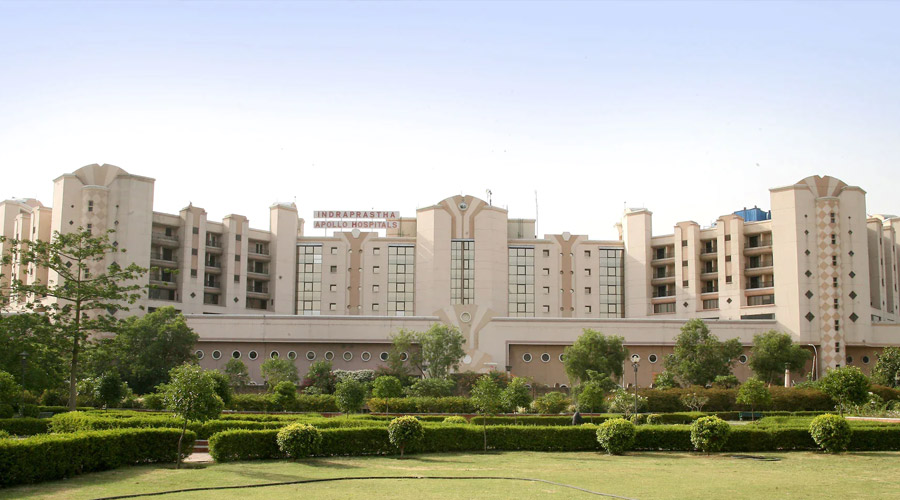
Indraprastha Apollo Hospital, New Delhi
Established in 1996, Indraprastha Apollo Hospital is NABL and JCI accredited. Apollo Group offers 10,000 beds across 64 hospitals, more than 2,200 pharmacies, over 100 primary care & diagnostic clinics and 115 telemedicine units across 9 countries. Indraprastha Apollo Hospital has 52 specialties under one roof.
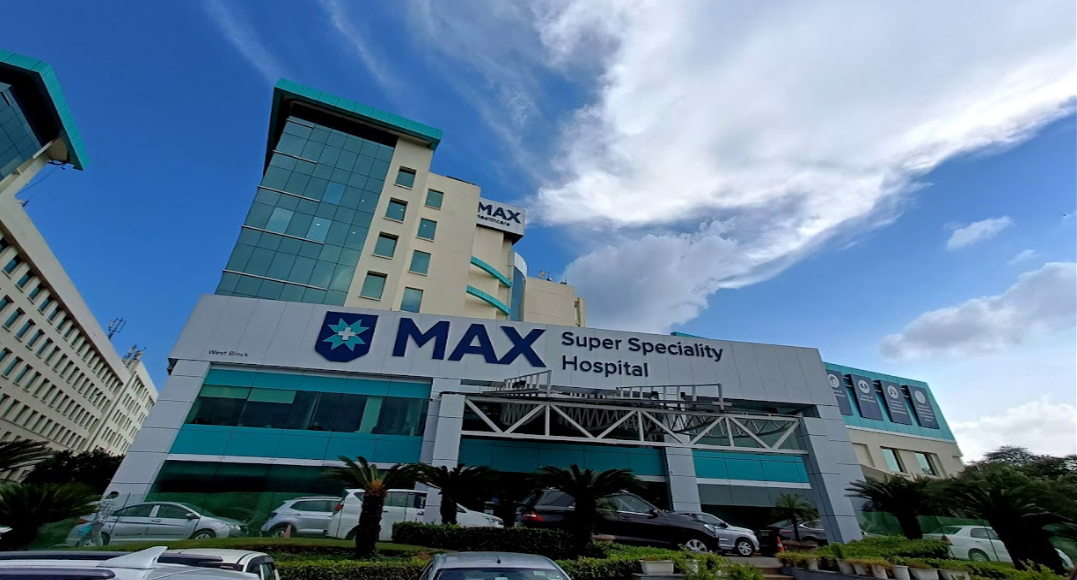
Max Super Speciality Hospital, Saket
Max Super Speciality Hospital Patparganj, Delhi has been one of the top medical care facilities for people living in India as well as internationally. It is home to one of the best speciality treatment centres with the best doctors renowned in India and internationally.
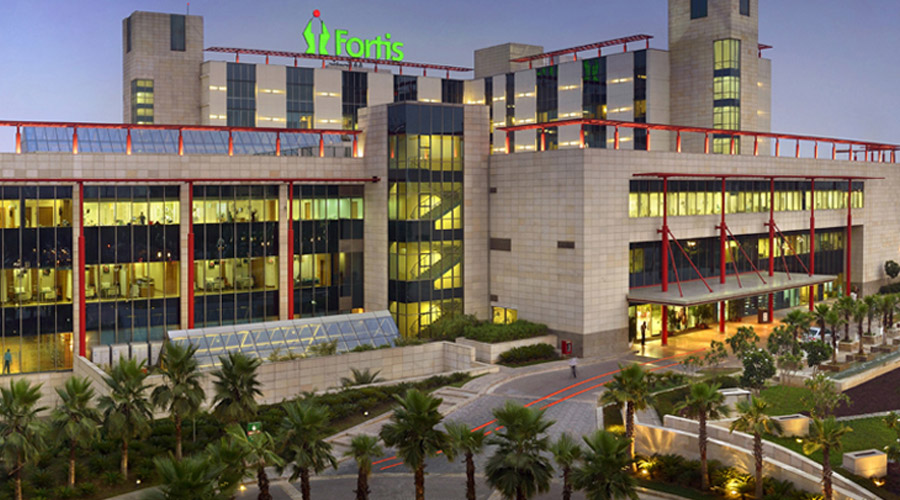
Fortis Memorial Research Institute – Gurugram, NCR Delhi
Fortis Memorial Research Institute (FMRI), a multi-super-specialty, quaternary care hospital, is considered as one of the best hospitals in Gurgaon. Fortis Hospital, Gurgaon, has undergone a thorough on-site review of the quality and safety of care being provided and is committed to continuously meeting rigorous international standards.
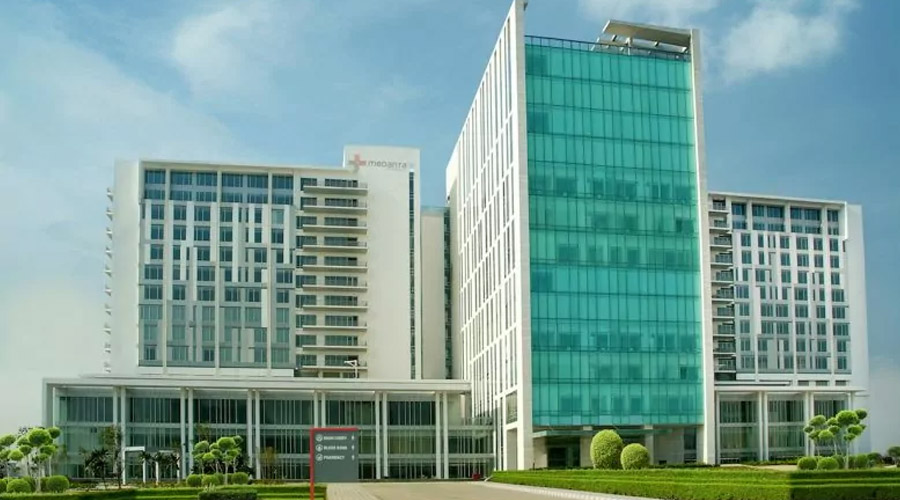
Medanta – Multi-Super Specialty Hospital
Medanta – The Medicity is one of India’s largest multi-super specialty institutes located in Gurgaon, a bustling town in the National Capital Region. Founded by eminent cardiac surgeon, Dr. Naresh Trehan, the institution has been envisioned with the aim of bringing to India the highest standards of medical care along with clinical research, education and training.
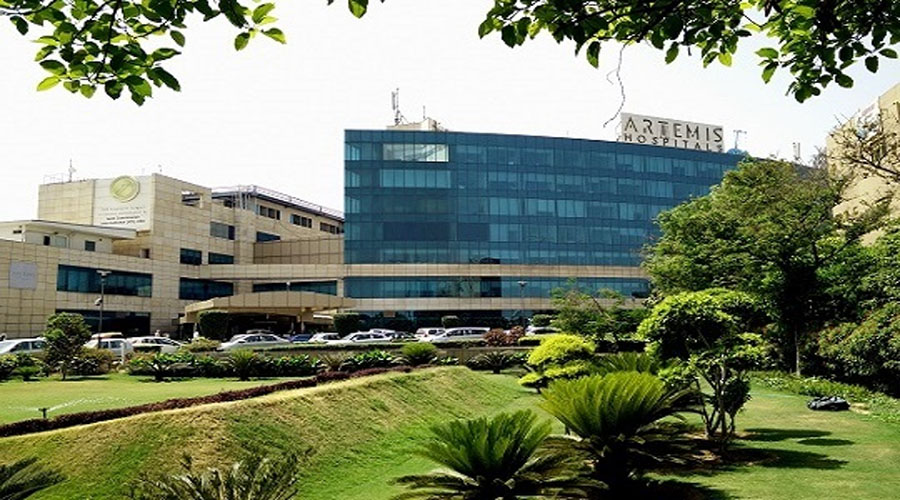
Artemis Hospital – Gurugram, NCR Delhi
Artemis Health Institute, established in 2007, is a healthcare venture launched by the promoters of the Apollo Tyres Group. Artemis is the first Hospital in Gurgaon to get accredited by Joint Commission International (JCI) (in 2013). It is the first Hospital in Haryana to get NABH accreditation within 3 years of start up.
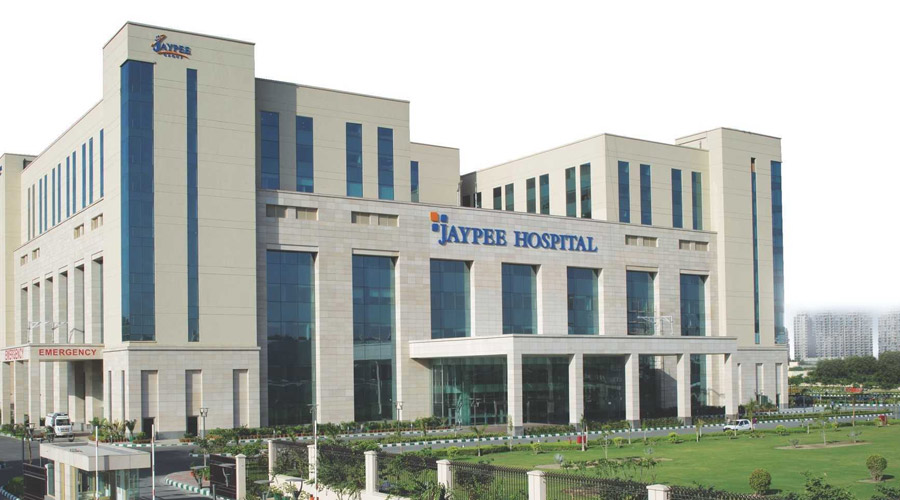
Jaypee Multi-Super Speciality Hospital – Noida
The Jaypee Hospital was conceptualized by our revered Founder Chairman, Shri Jai Prakash Gaur with the vision of promoting world-class healthcare amongst the masses by providing quality and affordable medical care with commitment.
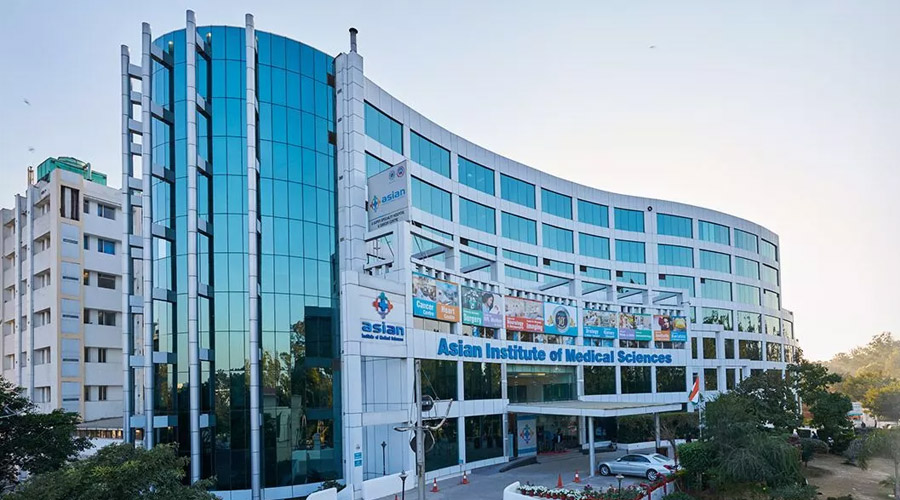
Asian Institute of Medical Sciences
425-bedded super speciality tertiary care hospital is truly futuristic in its services & technology and brings together some of the most talented medical professionals in India. The hospital has been accredited with NABH and NABL accreditations and is equipped with state-of-the-art technology.
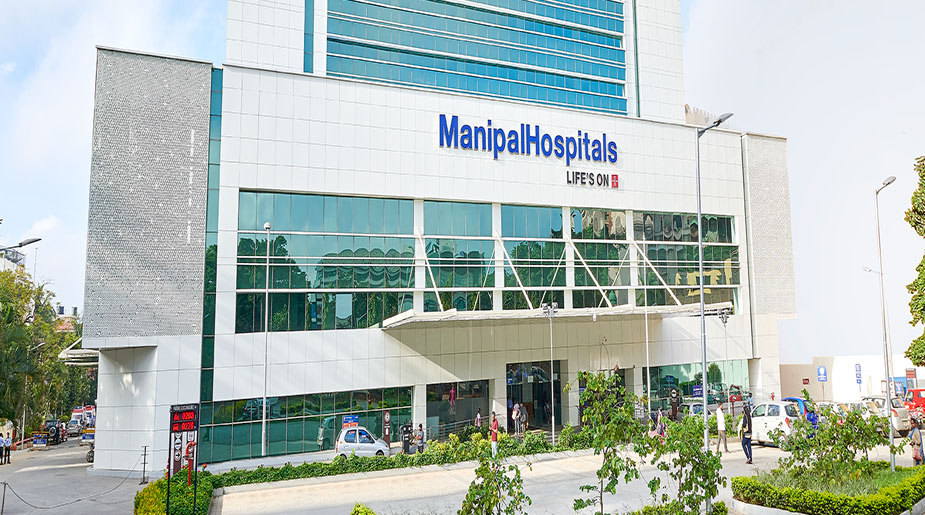
Manipal Hospital, Kharadi – Pune
Manipal Hospitals is one of India’s foremost multi-specialty healthcare providers catering to both Indian and international patients. We are a part of the Manipal Education and Medical Group (MEMG), a leader in the areas of education and healthcare.
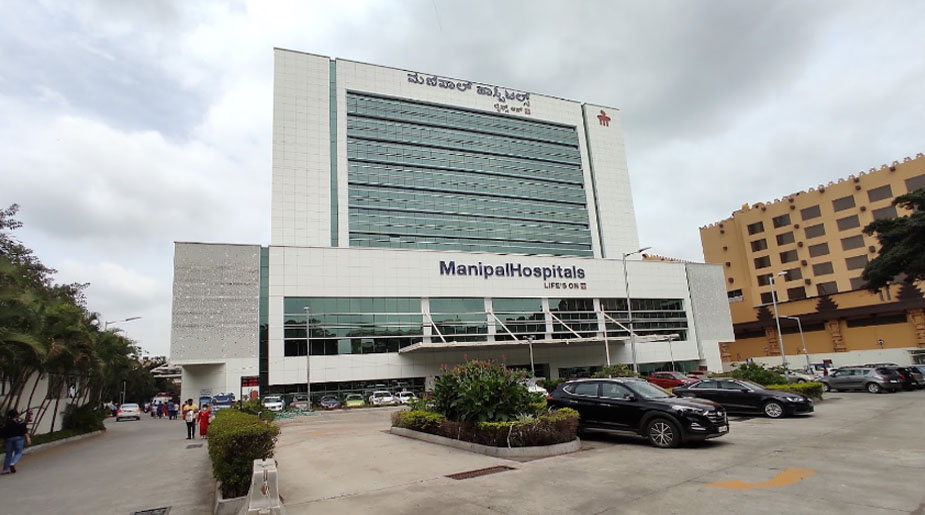
Manipal Hospital (Old Airport Road), Bangalore
Manipal Hospitals is one of India’s foremost multi-specialty healthcare providers catering to both Indian and international patients. We are a part of the Manipal Education and Medical Group (MEMG), a leader in the areas of education and healthcare.
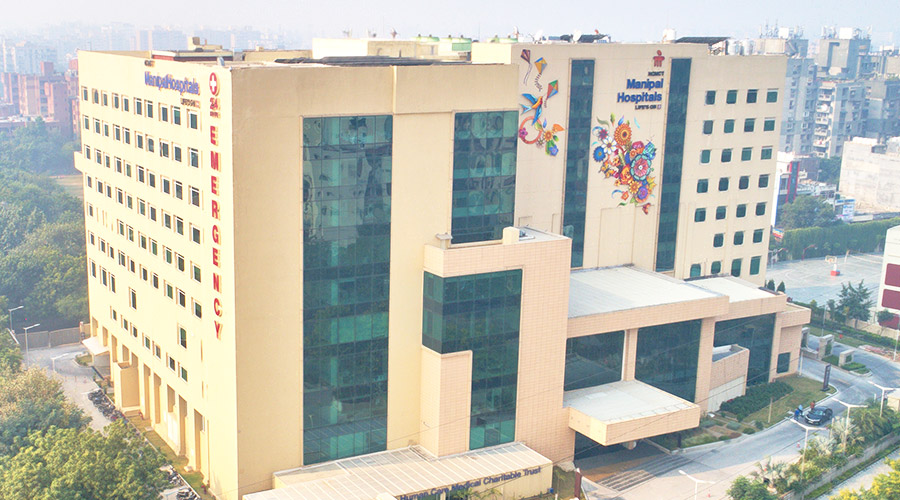
Manipal Hospital – Delhi
Manipal Hospitals is one of India’s foremost multi-specialty healthcare providers catering to both Indian and international patients. We are a part of the Manipal Education and Medical Group (MEMG), a leader in the areas of education and healthcare.
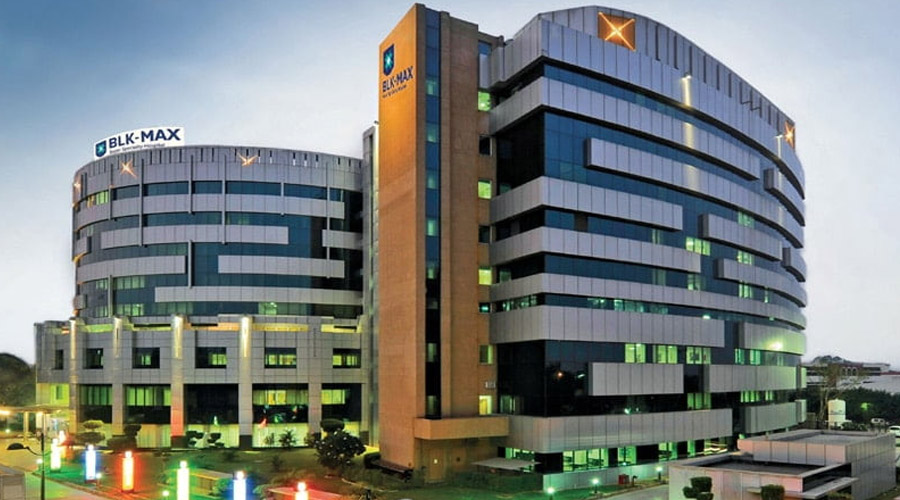
BLK-Max Super Speciality Hospital
BLK-Max Super Speciality Hospital is part of the largest healthcare networks in India, offering a wide range of services, making it a force to reckon with in the field of Super Speciality Tertiary Healthcare.
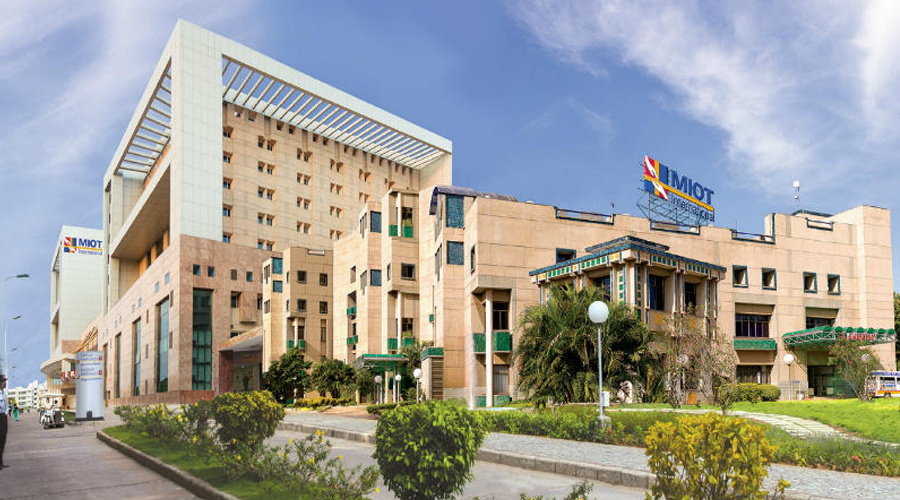
MIOT International, Chennai
MIOT International offers the best in health care to patients who have come to trust the hospital as one of India’s best. A 1000-bed facility offering superlative treatment in 63 specialities


